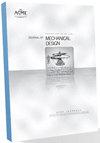使用基于代理的建模和神经网络模拟乌干达改进炉灶的采用和社会影响
IF 3
3区 工程技术
Q2 ENGINEERING, MECHANICAL
引用次数: 0
摘要
本文提出了一种预测产品的采用和社会影响的方法,该方法使用基于代理的建模(ABM)和神经网络来帮助在社会技术系统中与产品的设计和实现相关的决策。还概述了关于产品的社会影响的主要数据的收集。虽然本文说明了乌干达改进炉灶的方法,但该方法可以应用于广泛的情况。在乌干达进行了一项实地研究,包括两个阶段的数据收集。现场工作的数据被用来训练一个神经网络来预测一个人是否会采用改进的炉灶。从调查中收集的数据和经过培训的采用模型用于创建ABM,以估计采用技术的家庭的采用率和社会影响,并评估社会影响指标。本文的贡献是收集产品的主要社会影响数据的方法,以及如何将这些数据集成到基于预测代理的社会影响模型中。这种方法还可以检查社会技术系统中的杠杆点,以改善产品在社会中实施时的社会影响。本文章由计算机程序翻译,如有差异,请以英文原文为准。
Simulating the Adoption and Social Impact of Improved Cookstoves in Uganda Using Agent-Based Modeling and Neural Networks
This paper presents a methodology for predicting the adoption and social impact of a product using agent-based modeling (ABM) and neural networks to aid in decision-making related to the design and implementation of the product in a sociotechnical system. The collection of primary data on the social impact of a product is also outlined. Although this paper illustrates the method for improved cookstoves in Uganda, the method can be applied to a wide range of contexts. A field study was carried out in Uganda, consisting of two phases of data collection. The data from the fieldwork was used to train a neural network to predict if an individual would adopt an improved cookstove. Data collected from surveys and the trained adoption model were used to create an ABM to estimate adoption rates and social impacts experienced by households that had adopted technology and to assess social impact indicators. The contributions of this article are a method for collecting primary social impact data on a product and how to integrate those data into a predictive agent-based social impact model. This methodology also enables the examination of leverage points in the sociotechnical system to improve the social impact of a product as it is implemented in society.
求助全文
通过发布文献求助,成功后即可免费获取论文全文。
去求助
来源期刊

Journal of Mechanical Design
工程技术-工程:机械
CiteScore
8.00
自引率
18.20%
发文量
139
审稿时长
3.9 months
期刊介绍:
The Journal of Mechanical Design (JMD) serves the broad design community as the venue for scholarly, archival research in all aspects of the design activity with emphasis on design synthesis. JMD has traditionally served the ASME Design Engineering Division and its technical committees, but it welcomes contributions from all areas of design with emphasis on synthesis. JMD communicates original contributions, primarily in the form of research articles of considerable depth, but also technical briefs, design innovation papers, book reviews, and editorials.
Scope: The Journal of Mechanical Design (JMD) serves the broad design community as the venue for scholarly, archival research in all aspects of the design activity with emphasis on design synthesis. JMD has traditionally served the ASME Design Engineering Division and its technical committees, but it welcomes contributions from all areas of design with emphasis on synthesis. JMD communicates original contributions, primarily in the form of research articles of considerable depth, but also technical briefs, design innovation papers, book reviews, and editorials.
 求助内容:
求助内容: 应助结果提醒方式:
应助结果提醒方式:


